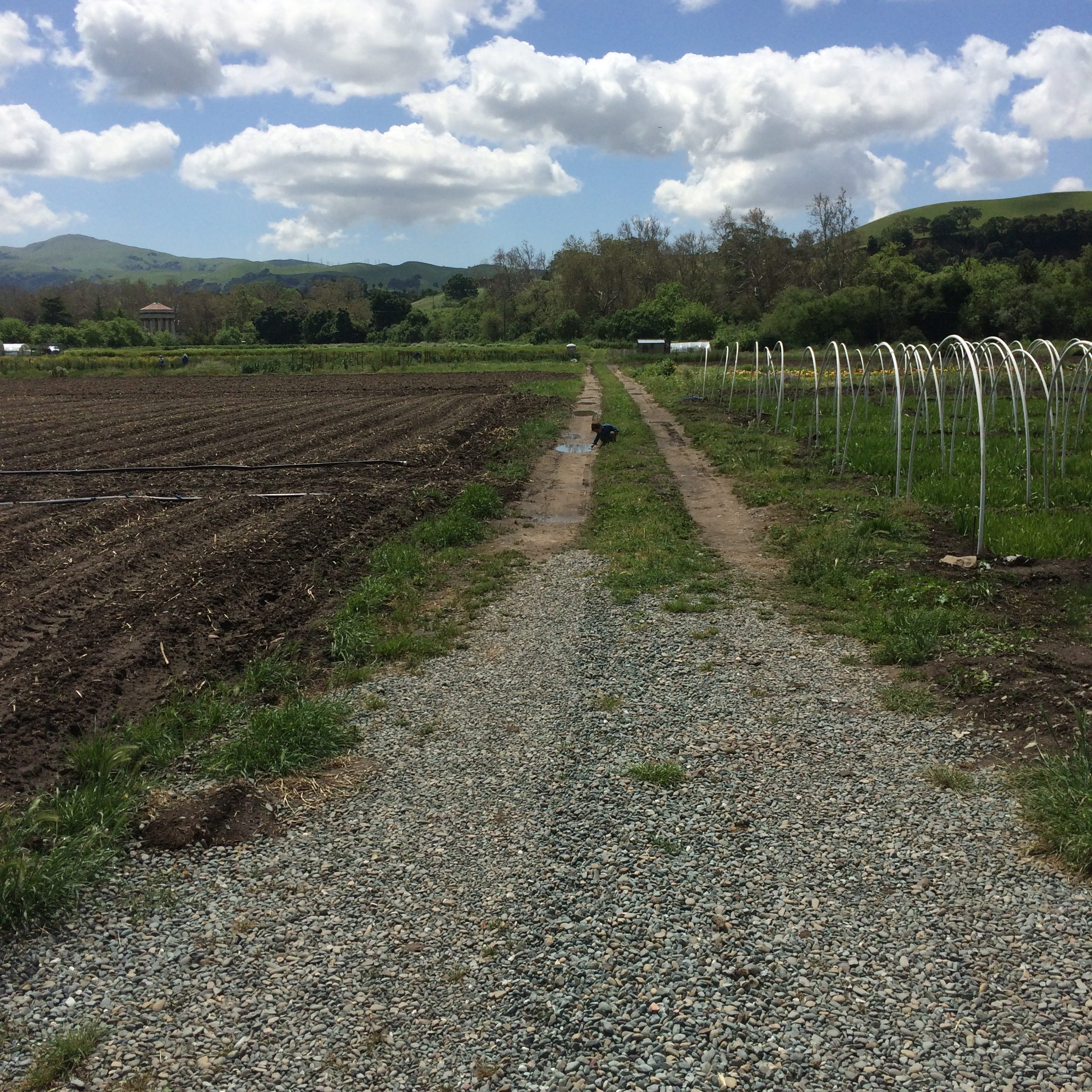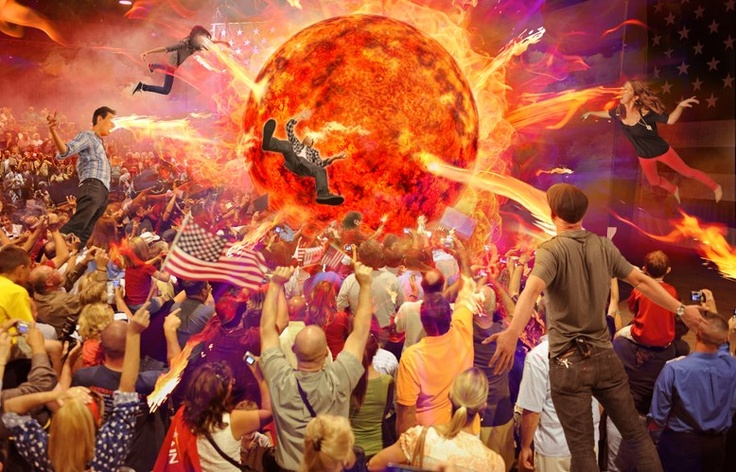We’re all to blame, but some more than others.
This is my mantra lately. I keep it in mind because I sense a danger in taking on too much guilt around the many fucked up things going on in the world. It’s true we’re all to some degree implicated in many of these things, and so I acknowledge there is also a danger in not feeling responsible for some of the negative aspects of the state of the world. But responsibility is not the same thing as guilt, and guilt is a worse foundation for action of the two feelings.
An example that’s very present from my life is in gentrification. I grew up in San Francisco, and sure enough, due to the “hypergentrification” the City has gone through, I no longer live there due to being displaced from my last apartment.[1] Displacement is something I know experientially—it’s not some abstract thing. Most of my friends from growing up and early adulthood can no longer live in the city.
I spent my youth coming up in arts, punk music, and urban farming scenes. All three of these areas of urban activity—and those involved in them—have been called out as contributing to gentrification. You may recall the basic argument: generally white(r) populations move into down-and-out areas of disinvested cities, making them “nicer” by dedicating their time to (generally non-paying) pursuits like making art, green space, social/cultural spaces. Their hip tastes and whiteness attract new and wealthier residents who now feel “safe” and welcome where they once didn’t. … Soon rents are going up, and the original residents are forced out by elevating prices or by efforts to get them out (e.g. evictions), since there is more profit to be made serving the newer, richer and whiter populations.
I’m not saying this narrative is completely untrue. But as I’ve covered elsewhere, the narrative ends up placing blame on and directs attention to those who are in a “buying” position in the economy. These are not the people who drive gentrification through choices of investment, disinvestment, and policy-making, but those who play an important but subsidiary role. Neil Smith and others have made this point before.
Another sphere where we’re all responsible, but some more than others, is as regards the state of “the environment”. As Utah Phillips (supposedly) said “The Earth isn’t dying, it’s being killed, and those who are killing it have names and addresses”. Yes, I myself have killed the earth by eating take-out, by driving occasionally, by taking planes, by throwing things “away” in a landfill (somewhere)—guilty as charged. You probably kill the earth too, on a daily basis. But we are not meaningfully in control of the underlying material processes that lead to this impact: the extraction of minerals from the earth’s crust, the extraction of fossil fuels and their processing and trading, the financing of these processes, the policy-making that fails to constrain these processes or prevent their damaging impact. We too are in buying positions, which are important but not central.
It seems nonsensical to put you, Exxon CEO/U.S. Secretary of State Rex Tillerson, and me on the same plane in any political analysis of the environmental problem. A political vision that focuses too much on individual behaviors risks forgetting how much these behaviors are structurally determined, and thus could misdirect political energy away from those are more so responsible for structuring such behavior.
A similar argument can be made regarding the continued harmful white supremacy that pervades everyday life. Certainly, as critical race theorists and antiracist activists have pointed out, white supremacy is “re-inscribed” in everyday life by the individual actions of “everyday” people. We can see this in the overt racism and outward hate emboldened and made even more visible in the post-Trimp era, as well as the more subtle forms of white supremacy common among self-identified “liberals”, like microagressions (forms brilliantly parodied in the smash hit movie “Get Out”).
But just as important are the actions performed by individuals who play vital roles in organizations that structure white supremacy into our lives and enforce it: political bodies, corporations and companies, policing and war-making organizations, and so on. This form of racism is less about individuals and their personal attitudes as the function their (daily) activity fulfills.
I’m thinking for example of government officials (whether executive, legislative, or judicial) making policy, and the decisions made by heads and stockholders of profit-making companies. Politicians make white supremacist laws and police enforce them. Companies pollute and exploit communities of color and get away with it. Real estate investors and their friends in planning departments make plans to displace communities of color in favor of the profit-making opportunity of neighborhood “revitalization” (i.e. gentrification). Individuals in these positions are key points where white supremacy is maintained, even if none of them show outward attitudes of racism.
Sure, we all play a role in these complex political, economic, and ideological processes that lead back to white supremacy—and so we all need to play a role in resisting, subverting, or redirecting these processes. Yet, simply stating “we are all responsible” tends to downplay that some people operate in positions of relatively greater capacity to shape the lives of others. Recognizing this greater capacity should inform more targeted and perhaps strategic political intervention. We can and should fight white supremacy in all its forms and embodiments, but we might want to prioritize fighting against people and organizations that are the most implicated.
…
Doing so also leaves more space for the uncomfortable and long-term process of changing the everyday ideologies and behavior patterns of people away from white supremacy. That is, if we approach everyone as part of the problem, we have a much harder time gathering a meaningful force towards solutions. This would go for environmental and anti-gentrification movements too. Sometimes, this process is difficult, as those who form the cutting edge of gentrification and white supremacy are sometimes masked by their identities and powerful “it’s not me” defenses.
The case of the Boyle Heights Alliance Against Artwashing and Displacement (BHAAAD) in L.A. is instructive here: in response to obvious indications of arts-led gentrification, with art forming a wedge by which to force open the neighborhood to new colonizers, BHAAAD targeted galleries which were investor’s playthings, but were fronted by queer and otherwise self-described ‘marginalized’ people. While not sparing any harsh words of critique for the process, BHAAAD made it clear: if these gallerists involved wished to avoid being implicated in this unjust process, they needed to close their galleries and leave the neighborhood.
Offering history to explain the gallerists’ role in displacement (unacknowledged by the gallerists, or possibly just too uncomfortable to recognize), BHAAAD explains this role in terms of investment, capital, and (collective) political power—not just individual behavior based on individual “values”. Thus they leave the door open for implicated folks (who were not necessarily “the most responsible”) to choose sides and see themselves as political actors with potentially better choices.
We need to hold a space for self-critique and calling out negative patterns we experience in our immediate environment (e.g. school, home, workplace, social life, etc), but we need to focus our political analysis and oppositional efforts on the structures that are primarily responsible for material conditions, and the people who are directing those structures. To the great middle—those participating in but not directing injustice—activism must be critical, firm, but offered with a structural analysis that leaves an opening for those targeted to be self-reflective and align their actions with their stated politics.
[I suppose this piece needs an accompanying one to explain why police, politicians, and investors should not be considered part of this ‘great middle’, and should be treated instead as the enemies they are. Next time.]
[1] I have things pretty good, relatively speaking: I received a buy-out payment for my eviction, and my mom was lucky enough to buy one of the last affordable houses in the 1990s so I now benefit from that class privilege.
 I’ve been worried about (generalized) environmental destruction throughout my life, aside from anything related to parenting. For the most part, I’ve never fallen prey to hopelessness given the circumstances. I’ve taken seriously the
I’ve been worried about (generalized) environmental destruction throughout my life, aside from anything related to parenting. For the most part, I’ve never fallen prey to hopelessness given the circumstances. I’ve taken seriously the  My involvement in what some have termed “
My involvement in what some have termed “